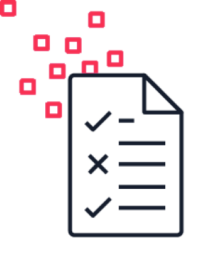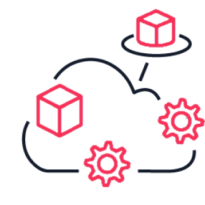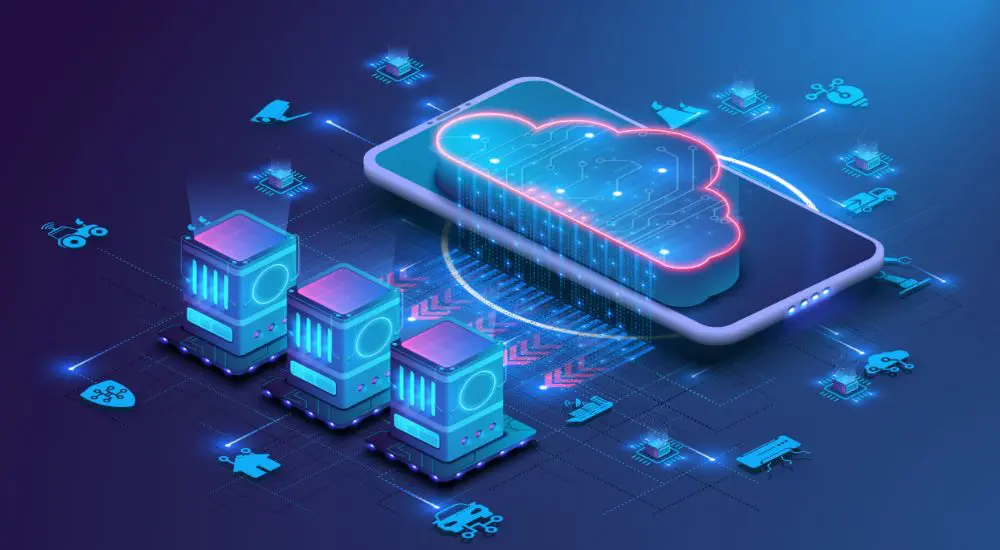Cloud Consulting Services
WE STAND OUT FROM THE CROWD
Our expertise allows us to support our customers and partners in their cloud transition, helping them to reach their objectives more quickly and efficiently.
Our experts are 100% dedicated to AWS, and their know-how is unmatched on the market.
WHY USE THE CLOUD?
These days, the market is more competitive than ever. Cloud computing makes your organization more efficient, so you can stay one step ahead of the game.
CLOUD CONSULTING SERVICES Cloud Migration / Modernization

Successful cloud migration isn't just about bringing workloads into the cloud, it's also a significant business opportunity.
These are some of the advantages you could obtain
- -20%
- Infrastructure costs
- -43%
- Market launch times
- -45%
- Security incidents
- +29%
- Innovation Time
- +66%
- Productivity
Three-step process

1. Assess
To start the process, it's important to gauge your organization's current readiness to function in the cloud, pinpoint the desired business results and develop the economic analysis for migration. Our tools and experts can help you assess your resources and establish an optimized cost projection for running applications in AWS.

2. Mobilize
During the mobilization phase, together we'll create a migration plan and refine your business analysis. We'll accompany you in preparing your organization and building your reference environment ("landing zone").
A solid migration plan starts with a thorough understanding of the interdependencies between applications, by evaluating migration strategies to achieve the objectives set out in the business case.

3. Migrate and modernize
During the migration and modernization phase, each application is created, migrated and validated. Our migration specialists can then start the process of transferring applications and data to AWS. Although not all decisions can be fully automated, our tools and experts can nevertheless guide you through the process.
Here are a few tips for a successful migration
- Start with the basics
- Avoid dependencies
- Prioritize and plan
- Decouple components
- Infrastructure through code
CLOUD CONSULTING SERVICES Architecture Review

For businesses already using the cloud, an architecture review provides a complete picture of their cloud maturity level.
In line with the 6 pillars of cloud computing (Operational Excellence, Security, Reliability, Efficiency, Cost Optimization, Sustainability), this review provides an in-depth view of your cloud usage. You’ll get a customized roadmap for the following 12 to 18 months, propelling your business towards a more efficient and cost-effective use of the cloud.
These specific approaches for each of the pillars help shape an all-inclusive cloud strategy that aligns with your objectives and focuses on best practices.
Pillars
Operational Excellence
The Operational Excellence pillar focuses on the execution and supervision of systems, as well as continuous improvement of processes and procedures.
Our approach encourages automation of changes, responsiveness to events, and the definition of standards to manage daily operations. The goal is to optimize operational efficiency by minimizing manual tasks, ensuring maximum responsiveness, and fostering continuous improvement at all levels of the organization.
Objectives:
- Optimize operational efficiency
- Automate processes and changes
- Promote continuous improvement
Reliability
The Reliability pillar emphasizes the reliability of operations, ensuring that workloads fulfill their original function and enabling quick recovery after a disaster to meet demand. The goal is to ensure that your operations stay functional if an incident occurs in your organization. It is crucial to put in place the necessary preparations to be ready when an event occurs, allowing for a faster and more effective response.
Reliability is not only measured by resilience to incidents but also by preparedness and responsiveness in case of issues. Our approach aims to anticipate potential incidents, develop robust contingency plans, and minimize downtime to ensure the continuity of your operations, even in unforeseen situations.
Objectives:
- Avoid any major interruption of operations
- Implement a comprehensive disaster recovery plan
Key Points:
- Designing distributed systems
- Recovery planning
- Adapting to changing requirements
Performance Efficiency
The Performance Efficiency pillar prioritizes the structured and optimized allocation of IT and computing resources. Our approach selects resource types and sizes optimized for the workload, continuously monitors performance, and adjusts resource allocation based on evolving needs. The priority is to ensure optimal performance while maximizing resource efficiency.
Objectives:
- Prioritize optimized resource allocation
- Select suitable resource types
- Continuously adjust to meet evolving needs
Security
The Security pillar focuses on protecting information and systems. It aims to ensure the confidentiality and integrity of data, as well as the secure management of user permissions. Our approach emphasizes the implementation of controls to detect security events. The goal is to create a secure environment by anticipating threats, implementing robust security policies, and ensuring continuous monitoring for a swift response to any anomalies.
Objectives:
- Protect information and systems
- Ensure confidentiality and integrity of data
- Securely manage user permissions
Cost Optimization
The Cost Optimization pillar focuses on avoiding unnecessary costs and maximizing the value of investments. Our approach includes a thorough analysis of expenses, rigorous control over fund allocation, judicious selection of resource types and quantities, and intelligent scaling to meet needs without uncontrolled spending. The goal is to ensure economical use of resources while maximizing the benefits of the cloud.
Objectives:
- Avoid unnecessary costs
- Analyze and control expenses
- Maximize the value of investments
Sustainability
The Sustainability pillar focuses on reducing environmental impacts resulting from running workloads in the cloud. Our approach involves a shared responsibility model for more sustainable use, analysis of environmental impacts, and optimization of resource utilization to minimize downstream effects. The goal is to integrate sustainability into all phases of cloud operations.
Objectives:
- Reduce environmental impacts
- Adopt a shared responsibility model for more sustainability
- Optimize resource utilization

Review process
An architecture review is usually completed within 3 to 4 weeks. It requires only a few hours to participate in the workshops with our experts. Our agile and collaborative approach guarantees an effective process, minimizing the impact on your operations while providing relevant advice to optimize your cloud usage.
Most cloud migration and modernization projects can be subsidized in part.
Contact us for more information.





